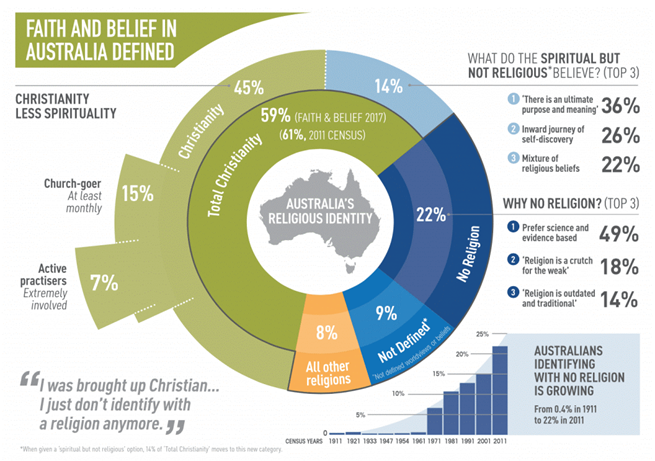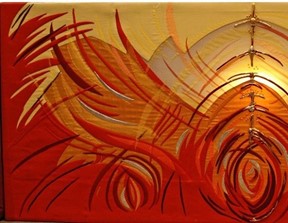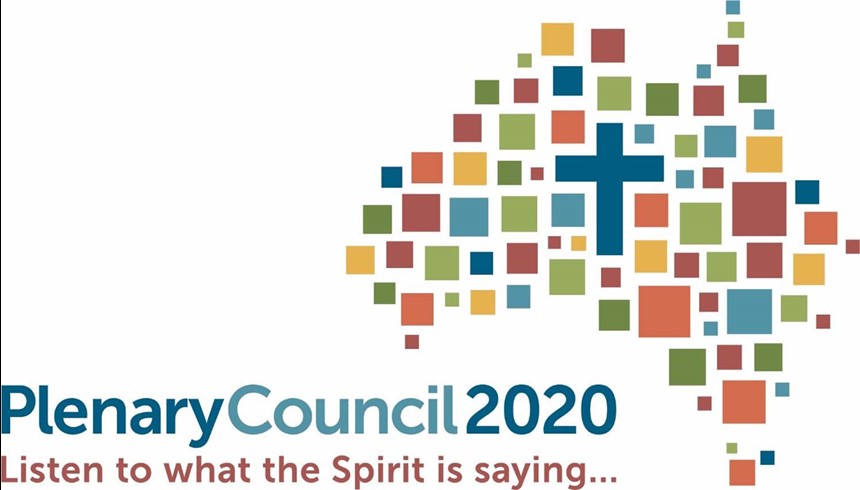The parents were both raised in Catholic homes, attended Catholic churches and schools and have remained loosely connected via their extended family. Now in their thirties with a young family and, while not what one would call ‘committed in faith’, they, like many of their generation (Gen Y), had carefully considered what was in the best interests of their children.
At their home after the church ceremony, the mother explained their thinking to the close family and friends who had gathered to mark this occasion. She described how they had considered the family’s Catholic heritage, a heritage they both felt part of and were grateful for, and how they did not want to break the chain of connection.
The young mum went on to explain that she and her husband had wanted to give their three children something to fall back on when life was challenging or difficult. Interestingly, this notion was also mentioned by the priest during the baptismal ceremony. There was a sense among the others gathered that there was a shared understanding of this notion.
Recognising the ‘one off’ nature of the congregation on what was a beautiful spring afternoon on the coast, the celebrant adopted a very casual and good humoured approach which saw us all relax into the ritual. He gently explained the important symbols and highlighted the significance of the responses, especially the promises of parents and godparents. Not surprisingly, he left out some of the heavier theology like original sin in the words of the rite, allowing each of us to access their meaning to the depth we were able. Father appeared most astute at reading the crowd and responding appropriately. Perhaps we were not a unique group and he was all too familiar with this approach.
In many ways, the 50 people gathered in the church that afternoon were a microcosm of Australian society. Great grandparents who were life-long committed Catholics, the grandparents being a mix of attenders and non-attenders, parents who barely remain cultural Catholics, and their kids who will most likely be ‘consumer’ Catholics. That is unless something changes!
 During Pentecost we turn our minds to consider what might be possible for a church in terms of transformative change because that is what our tradition teaches us is possible when the Holy Spirit comes to town ‒ or at least is still hanging around. This is a good time to reflect upon where we experience the power of the Spirit: prophetic persons, unified groups, courageous evangelists?
During Pentecost we turn our minds to consider what might be possible for a church in terms of transformative change because that is what our tradition teaches us is possible when the Holy Spirit comes to town ‒ or at least is still hanging around. This is a good time to reflect upon where we experience the power of the Spirit: prophetic persons, unified groups, courageous evangelists?
At the end of the Jubilee Year 2000, Pope John Paul II encouraged the Church to discern what the Spirit was saying to the Church and respond in each place to the context and culture of each place. Reflecting on what the Spirit has been saying to the People of God, he exhorted “the Pastors of the particular Churches, with the help of all sectors of God’s People”, to plan for the future in a collegial way that harmonises among the diocese the work of pastoral evangelisation. Novo Millennio Ineunte (2001) para 29.
Pope Francis renewed this call last October, saying, “a synodal Church is a Church that listens, which realises that ‘listening is more than simply hearing’. It is mutual listening in which everyone has something to learn. The faithful people, the college of bishops, the Bishop of Rome: all listening to each other, and all listening to the Holy Spirit, the Spirit of Truth (Jn 14:17), in order to know what he ‘says to the Churches’ (Rev 2:7).
Like most Christians, I have some experience of the power of the Holy Spirit and I have learned to treat her like electricity, with caution. Never underestimate what you can’t see and don’t fully understand, especially when you are surrounded by its power and run the risk of taking it for granted. To that end, I have often warned students in SRE and Confirmation classes, do not pray to the Holy Spirit unless you are serious about making a change in your life.
 My experiences have taught me this. Experiences like the innovation of the Holy Spirit during the celebration of sacraments, charismatic prayer groups and faithful friends who are Pentecostal Christian. The story of the first Pentecost as recounted and recalled throughout the New Testament gives a clear indication of the transformative nature of the Spirit’s power.
My experiences have taught me this. Experiences like the innovation of the Holy Spirit during the celebration of sacraments, charismatic prayer groups and faithful friends who are Pentecostal Christian. The story of the first Pentecost as recounted and recalled throughout the New Testament gives a clear indication of the transformative nature of the Spirit’s power.
There are those who believe we are living in the third millennium of Christianity when the role of the Holy Spirit within the Trinity comes to the fore. To them it is no surprise that the Australian Catholic Bishops have requested and been granted approval from Pope Francis to hold a Plenary Council. How appropriate was it that our bishops chose to launch this process of listening on Pentecost Sunday? We trust these shepherds of our church to know the extent of what they have begun.
This is a once in a lifetime experience for Australian Catholics and it comes at a pivotal point in our history. Post the Royal Commission into Institutional Responses to Sexual Abuse of Children, our leaders have decided to turn their ears to the Holy Spirit speaking through the People of God in order to discern the way forward for the Church in this nation. It is encouraging to note that Australia has long been recognised as the Great South Land of the Holy Spirit. Who knows what can be accomplished here?
The bishops have planned two sessions for this Plenary Council, one in October 2020 another in May 2021. These meetings represent the highest level of communion between all the dioceses of Australia. As such they will be attended by the bishops, along with religious and lay delegates who will discuss, debate and develop legislation that will shape the Church for generations to come.
The journey to these council sessions is vital and to this end the Australian Bishops have devoted this year, 2018, to listening and next year, 2019, to discerning.
One of Pope Francis’ favourite quotes from Vatican II (Lumen Gentium, 12) concerns how the bishops have access to the Holy Spirit, so that they are faithfully interpreting and applying what God has revealed and is revealing. And that access comes through a special gift that all the baptised have received at their baptism when they are anointed with chrism. That gift is called “a sense for the faith” (sensus fidei). Moreover, the whole church together has this special gift, “the faithful’s sense of the faith” (sensus fidelium).
I believe this is an opportunity not just to redress past wrongs or repair failing structures. If we seriously desire to answer, “What do you think God is asking of us in Australia?” we will need to be prepared to take time and invest energy in the process which is being laid out.
For committed Catholics who grew up in the post Vatican II Church, the very nature of the Church we are leaving to future generations depends upon this process. However, our voices will not be enough; we need to enable others to be heard, especially the cultural and consumer Catholics.
In many ways, it will be the voices of those who do not identify as Catholics that are most needed. The challenge will be hearing those who are far from our worshipping communities. Those who do not see the Church as relevant, or place no value in what it has to offer or are not prepared to trust this institution. Listening to the voice of dissent has long been a challenge for our church.
What will be the legacy we leave the children who are being baptised in the Catholic Church today?

